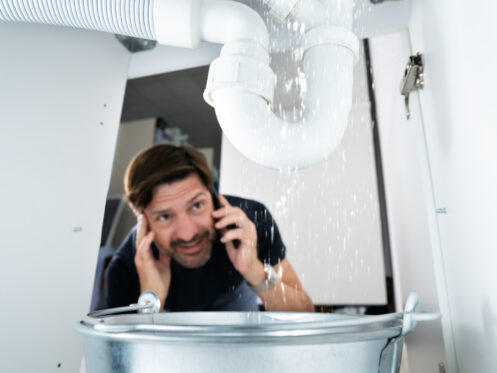One large part of maintaining a clean, comfortable, and healthy living environment is taking good care of the plumbing system in your Boylston, MA home. Whether dealing with dirty, slow-moving drains or an impending whole-house backup, responding quickly and in the right way can prevent extensive building damage, exposure to dangerous pathogens, and widespread mold problems. From avoiding emergency plumbing situations to mitigating their effects, here is everything you need to know.
Clogged Toilets and Overflows
There are few things worse than mucking out a filthy bathroom after your toilet has overflowed. If you haven’t done so already, now is a great time to familiarize yourself with the stop valve at the back of your commode. This valve immediately cuts the flow of water to this fixture. If you flush your toilet and a blockage prevents waste from leaving the bowl, turn this valve before a major mess occurs.
To prevent toilet clogs, never send anything down your commodes apart from organic waste and toilet paper. These are the only things that will degrade at a sufficiently rapid rate for clearing the plumbing system. Paper towels are made with far more durable fibers and adhesives. The strongest of these paper products can remain fully intact until they enter the municipal sewer main.
“Flushable” wipes are a major cause of toilet clogs. Although, like toilet paper, they’re primarily comprised of wood pulp, these fibers are often interwoven with long-lasting polymers that could take months to break down. Even when they successfully clear commodes, “flushable” wipes can go on to cause serious plumbing and sewer problems.
Water Heater Failure
Water heater failure can occur in many different ways. Although standard, storage-based water heaters can last 15 years or longer, they gradually lose their integrity all throughout their lives. Constant exposure to high temperatures and the corrosive effects of hard water minerals can leave water heaters with thin, worn spots throughout their tanks, damaged glass liners, and leaky connections.
To prevent wear-related damages, it’s important to have excessively hard water treated. If you have extra hard water in your home, installing water softening equipment will prevent build-ups of sediment and sediment-related corrosion at the bottom of your water heater’s tank.
It’s also important to regularly swap out your water heater’s anode rod. Also known as a sacrificial anode rod, this component travels the entire length of your water heater’s tank and attracts calcium, magnesium, and other hard water minerals to prevent tank damage. When anode rods wear out, these same minerals create buildup that can lead to overheating, increased pressure, and failure. Based on your plumber’s recommendations, this component should be replaced every one to three years.
Sometimes failing water heaters develop slow, steady leaks. As pressure mounts inside them, water escapes from their weakest points. In other instances, water heater tanks burst or rupture suddenly and rapidly spill their contents on the floor. If this ever happens in your home, turn off the water supply and electricity, and call a plumber right away.
What to Do in the Event of a Whole-House Backup
The biggest plumbing emergency that homeowners can ever face is a whole-house backup. All the wastewater pipes throughout your home converge onto a single sewer line. This line transports wastewater and solid waste to either the municipal sewer system or an on-site septic tank. When sewer lines are broken, compressed, or clogged, everything that would otherwise exit the building comes backing up into drains. No drain throughout the building is left unaffected, and fixtures and appliances are often filled with foul-smelling and contaminant-riddled debris.
The good news is that impending whole-house backups are often easy to detect and prevent. You might be in danger of experiencing a whole-house backup if your drains bubble or gurgle when no one is actively using the plumbing system. Foul drain odors and multiple slow-moving or blocked drains are other indications of oncoming backups.
Plumbers can identify the location of sewer line blockages using noninvasive camera technology. They can also clear out tree roots, invasive weeds, or other obstructions before they send blackwater rushing into the building.
Blackwater or wastewater that’s rife with both biological and chemical contaminants is incredibly dangerous. Even simply breathing it in can have a negative impact on your health. Thus, you should never attempt to suction it up, bale out dirty appliances, or clear blocked drains by yourself. When a whole-house backup occurs, it’s best to shut the power off and leave the building. If any of this effluence gets on your skin or clothes, change your clothing and take a shower as soon as you can.
Faucet Leaks and Why They’re Urgent Issues
Faucet leaks are often maddening. The steady dripping sound they produce is akin to torture, especially when you’re attempting to drift off to sleep. Notwithstanding, these all-too-common plumbing issues are often left to fester for months on end before homeowners take action. According to the United Stated Environmental Protection Agency (EPA), a single leaky faucet can waste up to 3,000 gallons of water each year.
Leaky faucets that are left unchecked can also:
- Speed the development of hard water buildup
- Create habitable conditions for dangerous bacteria
- Add excess moisture to the indoor air
- Set the stage for mildew and mold
Rather than looking at leaky faucets as minor annoyances, it’s best to have plumbers repair or replace them in a timely fashion. To keep your faucets leak-free, take steps to regulate your home’s water pressure and always have your bathroom and kitchen fixtures installed by seasoned plumbing professionals.
Burst Pipes
Pipes can burst as the result of normal aging. As hard water minerals build up at their interior, these structures become increasingly heavy and weak. However, pipe ruptures are most common in winter when outside temperatures dip below freezing. The best way to prevent weather-related pipe ruptures is by keeping the interior of your home at a suitable temperature. Even when you’re away, you should keep your thermostat setting at 55 degrees Fahrenheit or higher. You can also open up cabinet doors to allow warm air into under-sink areas where exposed pipes might otherwise freeze. If you have exposed pipes at the exterior of the building, have them insulated before winter arrives.
When dealing with a burst pipe, always turn off the water supply at the water main. Then, clean up as much water as you can, and open your windows and doors to ventilate the building. Contact a plumber and a water damage restoration company to address the problem at its source and prevent the development of mold.
Smelly, Foul-Tasting Water
In most areas, tap water is hardly palatable. To discerning consumers, this water often tastes much like the chemicals that have been used to treat it. Chlorine, chloramine, and other sanitizing agents can leave you with potable water that smells and tastes much like a swimming pool. Tap water can also pick up contaminants from the pipes that carry it. If your home’s pipes are several decades old, your tap water may even have a rusty, brownish hue. All of these things are good reasons to either invest in whole-house water filtration or upgrade your plumbing system.
However, if your water suddenly tastes, looks, or smells different, there may be another and far more dangerous source of contamination. Rather than risking it, turn off your taps and schedule plumbing service. Water quality testing will determine which contaminants are present, what their concentrations are, and the dangers of continuing to consume, bathe in, or cook with them.
Residents of Boylston, MA can count on us for superior heating, cooling, and plumbing services. Proudly serving the region for more than 90 years, we also offer water heaters, water treatment, and excavation. To schedule an appointment, get in touch with DeWolfe Contracting Inc today!





